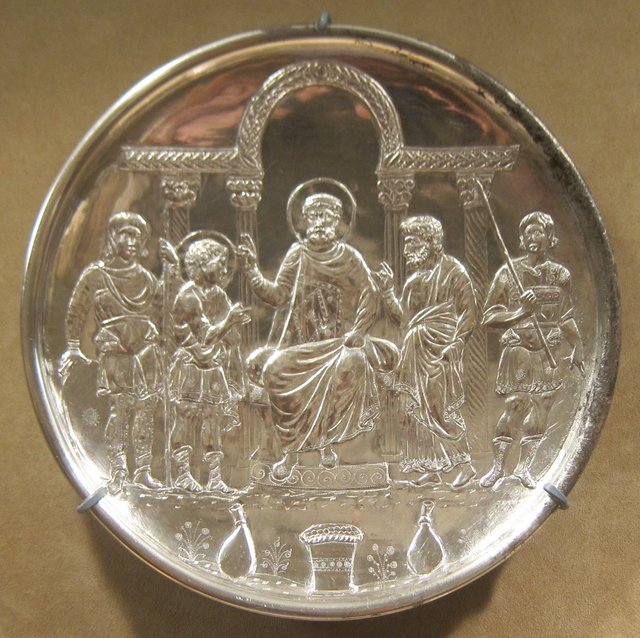Thoughts On the Baby Boomers (Part One)
THOUGHTS ON THE BABY BOOMERS (PART ONE)
INTRODUCTION
In a letter submitted to the Daily Mail, Dorothy Dobson responded to an article, published in the same paper, which attacked the Baby Boomer generation for being one that enjoyed privileges no longer available to subsequent generations. Headlined 'Not All Baby Boomers Lived The Life Of Riley', Mrs Dobson's letter explained how "I was born in 1948, to a household with no bathroom, no hot water, and no inside toilet...Our first house cost us £1,400 at a time when my husband's wages were £4 a week...My husband worked 16 hours a day, seven days a week to earn enough to live on...We're now pensioners and have a decent home and a small amount of savings...We have good holidays but we have worked hard all our lives. Today's whingers...think life owes them a living...They should be like we were and go without their luxuries".
Reading their letter, one's impression of the Dobsons' life is hardly one in which everything was handed to them on a silver platter. I expect many other Baby Boomers recognised their own life in this letter, for they too were born into households with very little luxury and worked hard for decades to secure a reasonable standard of living in which to live out their old age. It must be very frustrating to hear younger generations, those selfish, smartphone-obsessed kidults, going on endless 'gap-years' and maxing out their credit cards rather than saving for retirement, accusing the older generation of 'having it easy'.

As it happens, an understanding of the society that Baby Boomers grew up in, and the conditions experienced by later generations, indeed does not support the notion that our parents were born with everything handed to them on a silver platter. But things were different back then, and those differences arguably did grant the Baby Boomers opportunities that did not exist before, and have not existed since.
FROM PATRIMONIAL TO MERITOCRATIC CAPITALISM
In order to see why this might be so, one needs to understand that capitalism comes in many forms, some more inclusive than others. From the 18th to the early 20th century, the West was ruled by a form of capitalism we might call 'Patrimonial capitalism'. This is a form of capitalism dominated by old money that's circulated through inheritance, leading to a rigid class structure and little social mobility. This is the reason why 19th century social commentators, like Jane Austen, are so preoccupied with marriage; because back then the rigid class structure and lack of social mobility meant one's best chances of obtaining or holding onto great wealth was to marry into old money.
This attitude was encapsulated in an economic formula set out by Thomas Piketty: r>g. This formula relates the return on capital- r (and r includes profits, dividends, rents and other income from capital) and economic growth, or g, and > represents the idea that when the rate of growth is low, then wealth will tend to accumulate more quickly from r than from labour. It also tends to accumulate more among the top 10% and 1%. The result is a trend toward higher inequality.
This rise in financial inequality could have spelled the end of democracy, as society would have divided between an oligarchical elite whose inherited wealth dominated much of society, and everybody else, lacking the power to change their circumstances. But then, in the early 20th century, some dramatic events occurred which altered the course of history. Those events were the Great Depression and the two World Wars. As you might imagine, these events destroyed much wealth. But, as Piketty argued, they were particularly bad for the wealth owned by the elite. And in the aftermath of World War II, governments took steps towards a redistribution of wealth, and the fast economic growth occurring around the world reduced the importance of inherited wealth.

(Thomas Piketty)
How so? Well, the clue is in the word 'growth'. You see, when growth is slow, life changes only gradually. So a money-making venture that worked well for one generation will work for subsequent ones. The son inherits his father's buggy-whip empire and can life off of the profits it brings in. But when growth is high, change is fast and there is no guarantee that a successful venture will continue to work in the future. There is not much call for buggy whips when the internal combustion engine has rendered horse-drawn carriages obsolete.
So, between 1930 and 1975, the trend toward higher inequality was reversed, and a combination of government redistribution programs and fast growth enabled a transition away from patrimonial capitalism toward a more meritocratic form of capitalism. Whereas with patrimonial capitalism one's circumstances are largely dictated by the conditions into which you are born, in meritocratic capitalism it is more how you live your life that determines where on the social ladder you end up. You can go from riches to rags if you make enough bad decisions (or have inordinate amounts of bad luck). Or, like the Dobsons, you can go from being really quite poor to really quite well-off, all through your own efforts and careful money management. Certainly, this isn't privilege handed to you on a plate; it is the opportunity to ascend or descent the social ladder based on your own life choices.
COMMUNISM AND PATERNALISM
Another event which changed society from the 1920s to the 1980s was the rise of left-wing politics and the communist revolution. This revolution did not have quite the effect that Marx expected. He believed that socialism would sweep capitalism away, as the proletariat gained awareness of themselves as a class and used their superior collective strength to wrestle the means of production from the hands of the owner-classes. But, instead, the threat of communism and the collective strength of workers organised into unions lead to a reformation of the workplace. Whereas in the dark, satanic mills of the 19th century, employees were treated as commodities to be exploited for profit, made to endure conditions that would seem intolerably brutal to us, the postwar years saw business instead think of their employees as stakeholders. They would treat their staff well, providing benefits like job security, paid vacations, full health coverage and a pension that would enable the employee to continue living in the middle-class lifestyle to which he had become accustomed through decades of loyal service. And it was, of course, that loyalty that businesses hoped to encourage. If the company adopted a paternalistic attitude and looked after its employees, they would want to work to ensure the company thrived.
The rise in benefits during the Baby Boom period was captured in a booklet called 'A Record Of Progress', which was published by The Consolidated Edison Company of New York. It recorded "a 143% increase (from 1945 to 1960) of sick pay, medical coverage and paid absences; "a 172%" increase in leisure time benefits (vacations and paid holidays) and "a 562% " increase in retirement benefits".
What the Baby Boomers enjoyed, then, was not everything handed to them on a plate, but rather a world in which there was less inequality, more opportunity to succeed, and more security for ordinary people, than had been the case in the preceding two hundred years. It was a time when you were assured that doing well at school and gaining good grades would land you a decent job; your workplace would provide security for all your working life, and when you retired your company pension would allow you to sustain your middle-class existence for several decades- the remainder of your life, basically.
It was, arguably, a golden age of capitalism and state security. And now, it is all but gone. How that came about will be the subject of part two.
Images from wikimedia commons
REFERENCES
White Collar Sweatshop by Jill Andresky Frazer
The Trap by Adam Curtis
Capital In The 21st Century by Thomas Piketty
Daily Mail
I found this to be an interesting read and I look forward to part 2. Thanks!